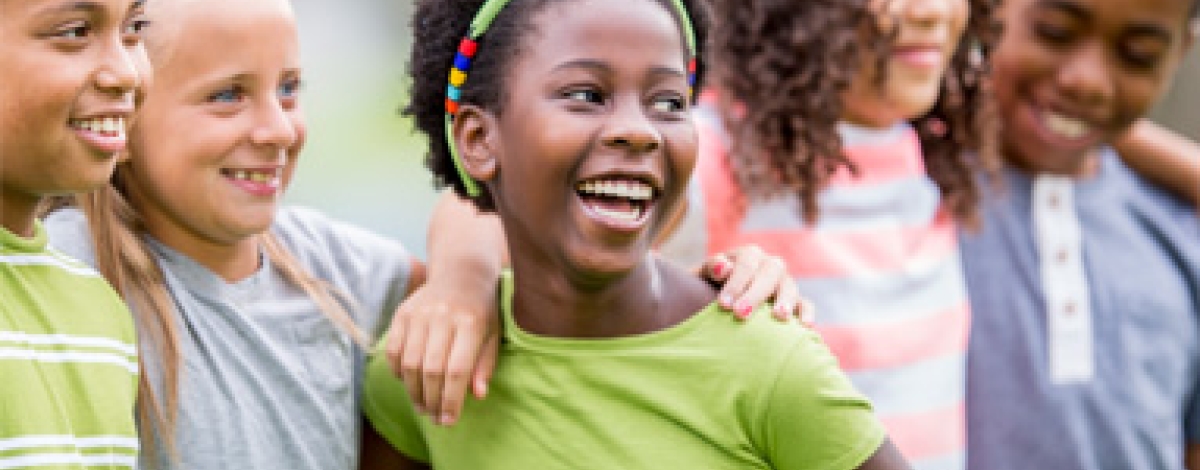The Importance of Friendship from Early Childhood to Adolescence
In honor of International Friendship Day, we want to highlight the importance of friendship in the role of personal and social development, as well as resources that JCFS Chicago offers to help children and teens build healthy connections.
Friendships can have a positive impact on a child’s self-esteem and ability to navigate social situations throughout the rest of their lives. In fact, child psychologists find early childhood friendships contribute to children’s quality of life and help them adjust to changes in their environment as well.
For example, shared activities with other kids contribute to a child’s social development because it allows them to complete a task through teamwork. It could be sports, creative projects, or science experiments – any activity that requires teamwork builds self-worth and a sense of community among children. JCFS Chicago emphasizes these skills by hosting groups to help young children practice and grow their social skills.
“Groups give children the opportunity to meet and be around new people. Our therapists help the children navigate socializations in safe spaces where everyone's personalities are acknowledged and accepted,” says Jennie Marble, Director of Integrated Pediatric Therapies. “We see friendships blossom organically, and many times we've heard stories of families meeting outside of group time.”
Integrated Pediatric Therapies hosts a play-based group (Ready, Set, Grow) designed for 2-to-3-year-old children who need support to develop language, play, and social skills when interacting with their peers. The group focuses on learning how to be a friend in some of the situations that kids experience on the playground or in school, such as waiting, turn-taking, following directions, and transitions. Check the JCFS Chicago calendar for dates or contact Megan Kowalski for more information.
For the siblings of children who have special needs, SibShops offers a place to meet other siblings in a relaxed, supportive, and recreational setting. It is an opportunity for kids ages 6-12 to bond over their common joys and concerns about having siblings with special needs. Being around other kids with similar experiences strengthens relationships between SibShops participants. Contact Tammy Besser to request registration materials.
Impact of Friendships for Teens and Pre-teens on Social and Mental Wellness
Where younger children are often reliant on their families to structure their social time, pre-teens can begin making choices about who they want to spend time with. As children get older, they start seeking acceptance from outside sources to boost their confidence and prove their value to other people.
Pre-teens learn how to navigate friendships in new ways and begin feeling a sense of personal agency around deciding who is important to them. As they get older, these can develop into very deep and abiding friendships – people they turn to for advice, validation, and fun. Response for Teens encourages these powerful friendships by offering unique opportunities for teenagers to get to know one another.
“Operation Snowball is a weekend retreat that’s meant to help young people develop positive, healthy friendships,” said Sara Manewith, Director of JCFS Response for Teens. "We’ve heard it called 'life-changing' by participants before… We designed the weekend to promote inclusivity and finding common ground – lessons that carry into participants’ futures.”
It's not just the retreat itself; the teenagers work for a year planning Operation Snowball, and solid friendships are born out of that collaboration. For more information on Operation Snowball, you can follow the Response for Teens Instagram page for updates, or contact Alyssa Robbins.
As friendships mature, they provide comfort, intimacy, and support. From childhood through adolescence, JCFS can provide resources and support to building meaningful friendships. An old Nigerian proverb sums it all up: “Hold a true friend with both hands!”



 Back
Back